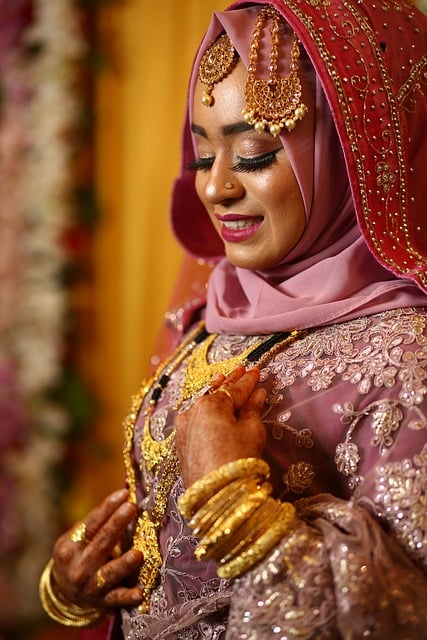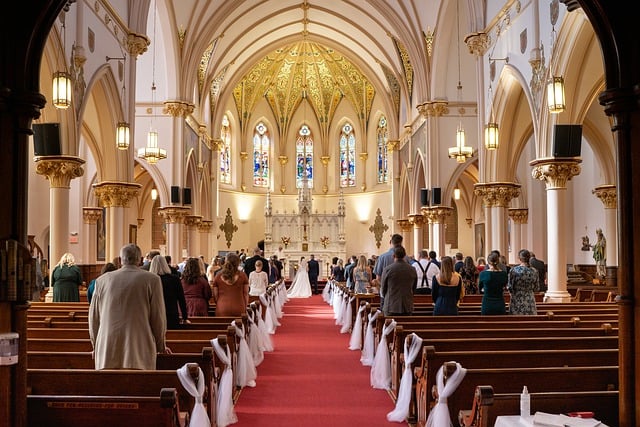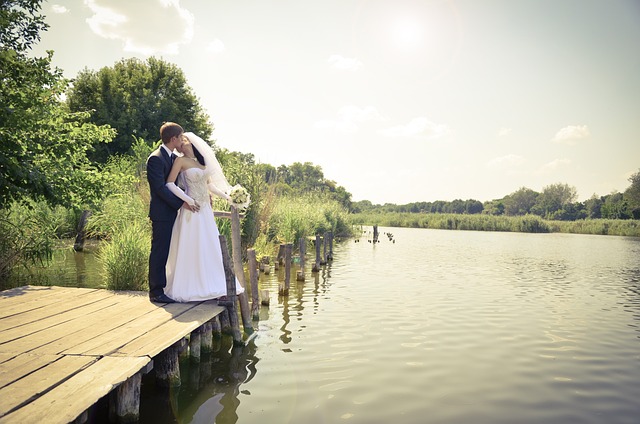In the UK, marriage certificates are legally binding documents requiring professional marriage certificate translation services for international use. These translations go beyond language conversion, demanding expertise in both law and linguistics to capture UK-specific nuances accurately. A stringent court-approved process ensures validity, with certified translations widely accepted in official settings like embassies for visa and citizenship processes. Choosing a reputable service with native-speaker translators, legal knowledge, and quality control guarantees accurate translations aligned with British law, facilitating global recognition of marriages.
In the UK, a marriage certificate is a legally binding document that confirms a couple’s union. When planning a wedding abroad or seeking legal recognition in the UK, understanding and translating this certificate becomes crucial. This guide navigates the process of obtaining a court-approved marriage certificate translation in the UK, covering legal requirements, choosing the right service, key considerations for accuracy, common challenges, and where to obtain certified translations.
- Understanding UK Marriage Certificates
- Legal Requirements for Translation
- Court-Approved Translation Process
- Choosing the Right Translation Service
- Key Considerations for Accurate Translations
- Common Challenges and How to Overcome Them
- Where to Obtain Your Certified Translation
Understanding UK Marriage Certificates

In the United Kingdom, a marriage certificate is an official document that records the details of a couple’s marriage. It serves as legal proof of their union and includes essential information such as names, dates, and the marriage venue. Understanding the structure and content of a UK marriage certificate is crucial for those requiring translations, especially when planning to use it abroad.
Marriage certificate translation UK plays a vital role in ensuring that these official documents are accurately interpreted and recognised internationally. The process involves translating not just the text but also understanding the legal implications and nuances specific to UK marriages. This is essential for individuals seeking to legalise their union in foreign jurisdictions or for official purposes in their home country.
Legal Requirements for Translation

When it comes to marriage certificate translations in the UK, adhering to strict legal requirements is non-negotiable. The process involves more than just translating words from one language to another; it demands precision, accuracy, and an understanding of both the source and target languages. This is particularly important for official documents like marriage certificates, which carry significant legal weight.
The UK’s legal system requires that translations be carried out by qualified translators who possess not only linguistic expertise but also a deep knowledge of the law and the nuances of legal terminology. These professionals are tasked with ensuring that every detail—from names and dates to legal clauses—is translated accurately, preserving the integrity and validity of the original document. For instance, specific language used in UK marriage laws must be handled precisely to maintain the certificate’s legitimacy, especially when it comes to international recognition or usage.
Court-Approved Translation Process

In the UK, marriage certificate translations are subject to a rigorous court-approved process. This involves the verification and certification of translations by an approved translator, ensuring accuracy and legal validity. Professional translators who specialise in this field are appointed to handle such documents, leveraging their expertise in both language and law.
The process begins with the original marriage certificate being submitted for evaluation. The translator thoroughly examines the document, checking for any nuances or specific terminology that requires careful attention. Once approved, the translation is signed and stamped, bearing the official seal of approval. This certified translation becomes a legal equivalent to the original certificate, widely accepted in various official settings, including immigration offices and embassies, for marriage-related matters such as visa applications and citizenship processes, reinforcing the significance of accurate Marriage Certificate Translation UK services.
Choosing the Right Translation Service

When it comes to UK court-approved marriage certificate translations, selecting the right service is paramount. Look for a company with extensive experience in legal document translation, preferably specialized in certificates. Verifying their accreditation and membership in relevant professional associations like the Institute of Translation & Interpreting (ITI) ensures quality and reliability.
Check if they offer native-speaker translators who are familiar with UK legal terminology and cultural nuances. Reputable services will also provide a guarantee for their work, ensuring accuracy and any necessary revisions. With these considerations in mind, you can rest assured that your marriage certificate translation will be handled competently, adhering to UK legal standards.
Key Considerations for Accurate Translations

When it comes to marriage certificate translations in the UK, accuracy is paramount. Key considerations for ensuring precise and legally acceptable translations include understanding both the original language and cultural nuances. Professional translators should be fluent not only in the language of the certificate but also in English, to avoid misinterpretations that could render the document invalid.
Additionally, these translators must be familiar with UK legal terminology related to marriages, as using incorrect terms or phrasing can lead to delays or rejection by the issuing authority. The translation process should follow strict quality control measures, including proofreading and review by another expert, to guarantee accuracy and consistency. This is crucial for ensuring that every detail on the translated certificate matches the original exactly, from dates and names to legal clauses, in order to facilitate seamless recognition and registration of the marriage both domestically and internationally.
Common Challenges and How to Overcome Them

When it comes to marriage certificate translations in the UK, one of the main challenges is ensuring accuracy and legal validity. Many couples face difficulties when translating their certificates for use abroad, particularly with regards to specific terminology and cultural nuances. For instance, some languages may not have direct equivalents for certain terms used in British law, leading to potential misinterpretations.
To overcome these challenges, it’s essential to engage professional translators who are not only fluent in the target language but also have legal expertise. They can provide precise translations that align with UK law and cultural context. Additionally, using certified translation services ensures the authenticity of the translated document, making it acceptable for official purposes worldwide. This meticulous approach guarantees that couples can legally marry or formalize their partnerships without any hiccups related to language barriers.
Where to Obtain Your Certified Translation

When it comes to obtaining a certified translation for your marriage certificate in the UK, there are several reliable options available. Many professional translation services offer this specialized service, ensuring accuracy and legal validity. These companies employ qualified translators who are experts in both language pairs involved, guaranteeing a precise and official translation.
You can find these services online or through local advertising. Some even provide urgent or same-day translations for those in a rush. Ensure that the chosen provider offers a certificate of accuracy, confirming the translation’s reliability, which is often required by UK courts and government agencies. This ensures peace of mind when submitting your marriage certificate for official purposes, such as citizenship or visa applications.
When it comes to marriage certificates, accuracy is paramount. Whether you’re an international couple tying the knot in the UK or a British citizen marrying abroad, ensuring your marriage certificate is legally recognised and properly translated is essential. By following the steps outlined in this guide, from understanding legal requirements to choosing a reputable translation service, you can navigate the process with confidence. Remember, a court-approved marriage certificate translation not only authenticates your union but also paves the way for future legal processes, such as citizenship or immigration applications. So, take the time to select a qualified translator and rest assured that your special day is legally recognised across borders.
